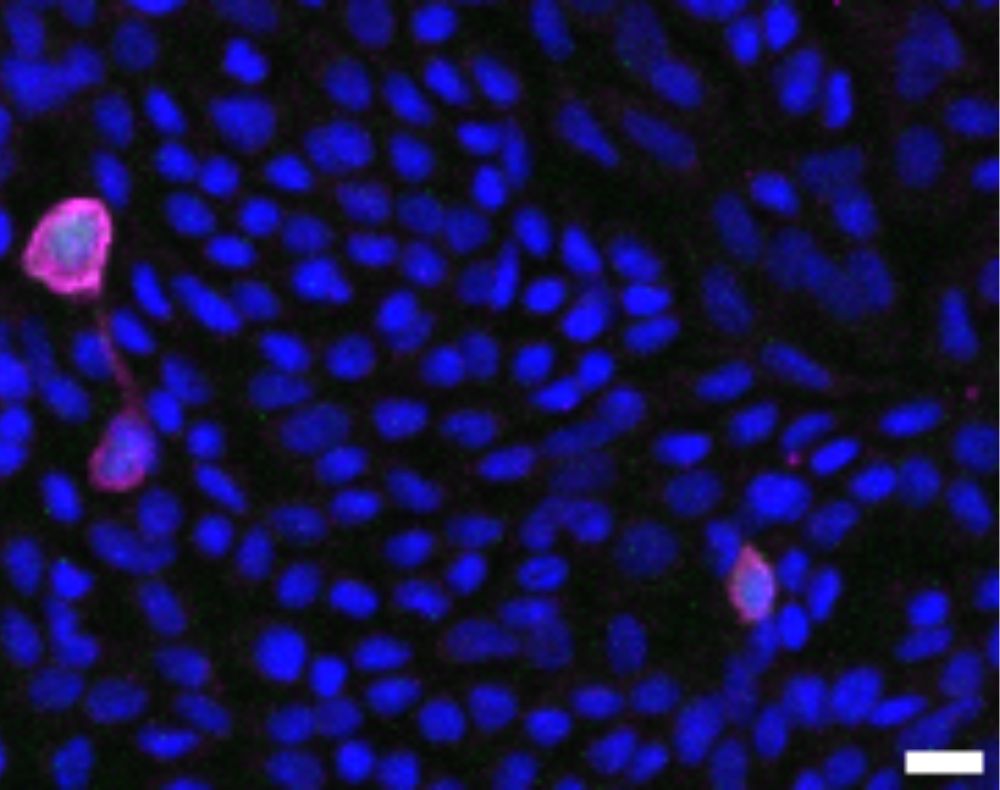Solitary Chemosensory Cells (Tuft Cells) in Nasal Polyps

Chronic rhinosinusitis affects up to 16% of the population in the United States and is among the most common reasons people seek medical attention. We demonstrated in a publication in the Journal of Allergy and Clinical Immunology in 2018 that nasal tuft cells (formerly known as solitary chemosensory cells), akin to type II taste cells in the tongue (responsible for taste transduction) are enriched in the sinus epithelium in those with chronic rhinosinusitis with nasal polyps. Little is known about the role of these rare epithelial cells role in human mucosal inflammatory diseases. We are working to characterize and identify pathways associated with nasal tuft cell differentiation to better understand why these rare cells are more abundant in those with chronic rhinosinusitis with nasal polyps. Through this work we aim to provide new insight into the pathways associated with tuft cell differentiation in chronic rhinosinusitis disease states and provide evidence for tuft cells as inflammatory amplifiers in the pathogenesis of chronic rhinosinusitis with nasal polyps which may reveal novel therapeutic targets for the treatment of chronic rhinosinusitis.

